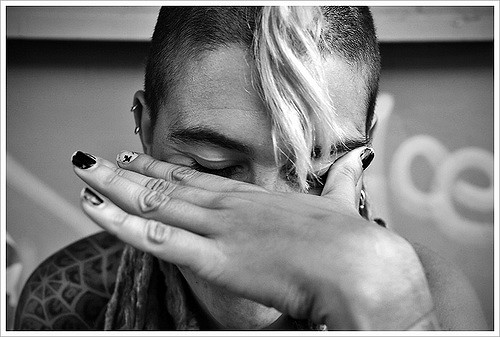Today’s Diabetes Blog Week prompt:
Having diabetes often makes a visit to the doctor a dreaded experience, as there is invariably bad news of one kind or another. And sometimes the way the doctor talks to you can leave you feeling like you’re at fault. Or maybe you have a fantastic healthcare team, but have experienced blame and judgement from someone else in your life – friend, loved one, complete stranger. Think about a particularly bad instance, how that person talked to you, the words they used and the conversation you had. Now, the game part. Let’s turn this around. If you could turn that person into a puppet, what would you have them say that would leave you feeling empowered and good about yourself? Let’s help teach people how to support us, rather than blame us!
+ + +
There’s plenty of blame to go around
There is plenty of talk about how people with diabetes feel the sting of blame from comments and assumptions made by people outside the diabetes community.
Only this past week the internet blew up when federal budget director Mick Mulvaney in commenting on healthcare reform said, “It doesn’t mean we should be required to take care of the person who sits home, drinks sugary drinks, doesn’t exercise, eats poorly, and gets diabetes.”
Ouch. That hurt.
Also, it’s ignorant.
As the American Diabetes Association declared shortly after Mulvaney’s comments, “No one chooses diabetes.”
We also talk about the blame game that goes on with our health care teams. The very people who are supposed to be in a position to help us manage our health better can be just as negative and uninformed.
My friend Brian tells the story of how his (former) endo undermined Brian’s confidence and motivation with the message “If You Weren’t So Fat You Wouldn’t Have Diabetes.”
Before you assume that only people with type 2 experience this kind of condescending treatment from their doctors, take a look at what my friend Steven has to say about “The Blame Game.”
Language and tone are important. They can build or undermine confidence and motivation. They are so important that Diabetes Australia has even issued a position statement on the language to use when communicating about diabetes.
What we don’t talk about
But there’s a version of the blame game that we don’t talk about.
That’s the blame game that goes on within the diabetes community. When one person or group touched by diabetes snarks on another.
It’s when someone says, “I couldn’t prevent my diabetes.”
It’s when someone says, “Without insulin, I die.”
It’s when someone says, “We should change the names so that people know there’s a difference.”
These comments are often couched in terms of trying to clarify the differences between one type and another. In reality it’s a way of distancing themselves from the other.
It’s a way of saying “I’m not like you.”
It’s a way of saying “I’m better than you.”
And it’s just as hurtful, demeaning, and as undermining as any blaming comment made by someone outside the diabetes community.
Maybe even more so.
+ + +


Corinna my time at TUDiabetes has helped me understand the awesome power of being together as a community. I understand we will not always agree with each other, but I have learned so much from my type 2 brothers and sisters that I am always amazed.
What I can never agree with is separating the two major types in different names. We get to the same place, we just use different paths.
It breaks my heart when I read the comments within the community. But I do hope there is a change happening.